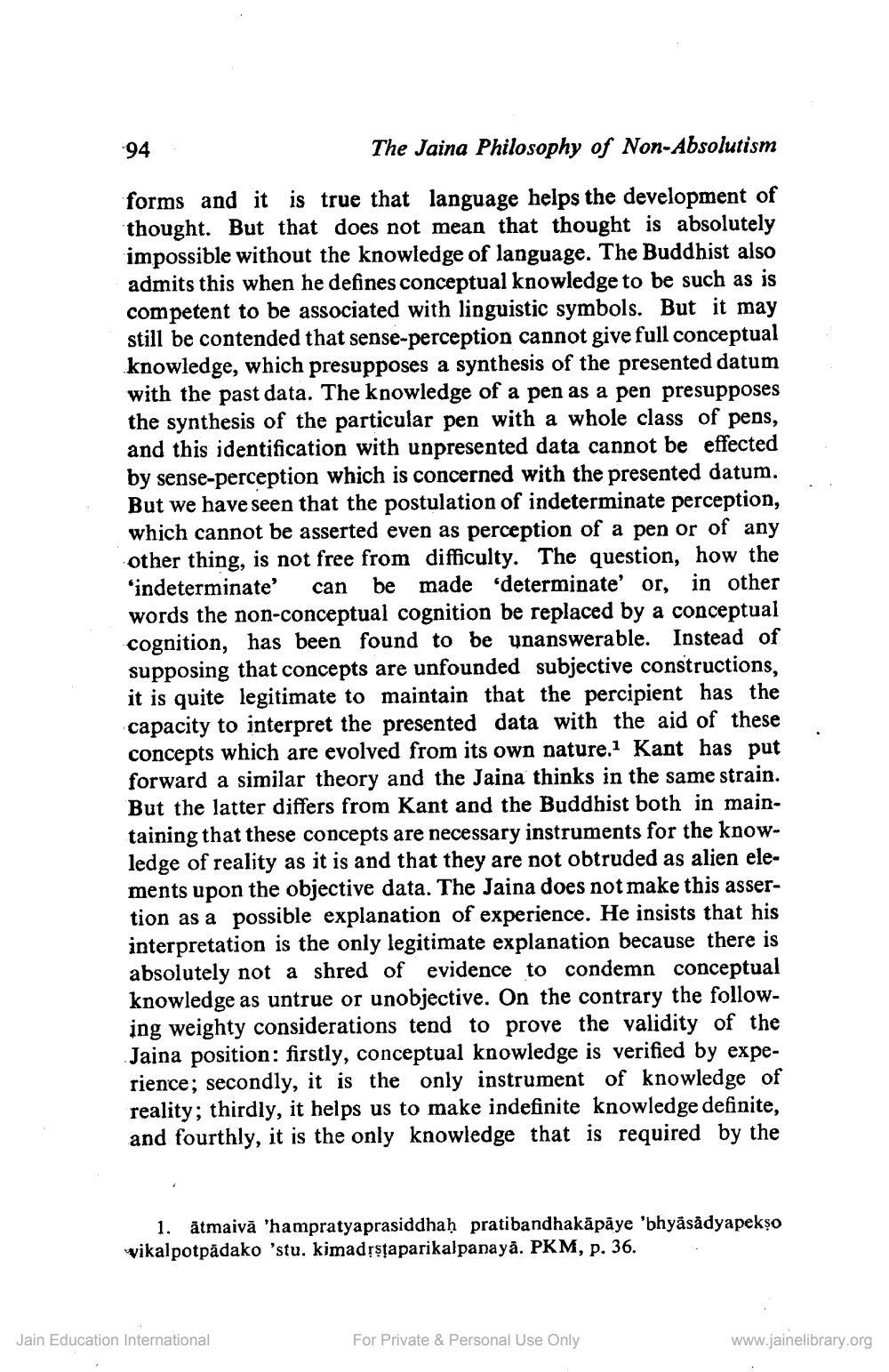________________
94
The Jaina Philosophy of Non-Absolutism
forms and it is true that language helps the development of thought. But that does not mean that thought is absolutely impossible without the knowledge of language. The Buddhist also admits this when he defines conceptual knowledge to be such as is competent to be associated with linguistic symbols. But it may still be contended that sense-perception cannot give full conceptual knowledge, which presupposes a synthesis of the presented datum with the past data. The knowledge of a pen as a pen presupposes the synthesis of the particular pen with a whole class of pens, and this identification with unpresented data cannot be effected by sense-perception which is concerned with the presented datum. But we have seen that the postulation of indeterminate perception, which cannot be asserted even as perception of a pen or of any other thing, is not free from difficulty. The question, how the 'indeterminate' can be made 'determinate' or, in other words the non-conceptual cognition be replaced by a conceptual cognition, has been found to be unanswerable. Instead of supposing that concepts are unfounded subjective constructions, it is quite legitimate to maintain that the percipient has the capacity to interpret the presented data with the aid of these concepts which are evolved from its own nature.1 Kant has put forward a similar theory and the Jaina thinks in the same strain. But the latter differs from Kant and the Buddhist both in maintaining that these concepts are necessary instruments for the knowledge of reality as it is and that they are not obtruded as alien elements upon the objective data. The Jaina does not make this assertion as a possible explanation of experience. He insists that his interpretation is the only legitimate explanation because there is absolutely not a shred of evidence to condemn conceptual knowledge as untrue or unobjective. On the contrary the following weighty considerations tend to prove the validity of the Jaina position: firstly, conceptual knowledge is verified by experience; secondly, it is the only instrument of knowledge of reality; thirdly, it helps us to make indefinite knowledge definite, and fourthly, it is the only knowledge that is required by the
1. ātmaivă 'hampratyaprasiddhaḥ pratibandhakāpāye 'bhyasadyapekso vikalpotpädako 'stu. kimadıstaparikalpanayā. PKM, p. 36.
Jain Education International
For Private & Personal Use Only
www.jainelibrary.org




